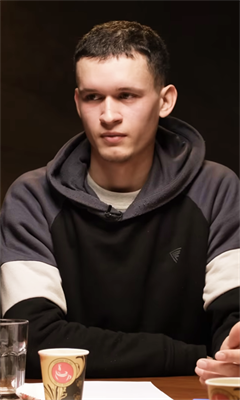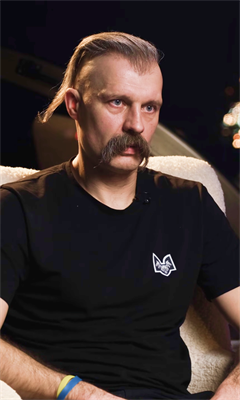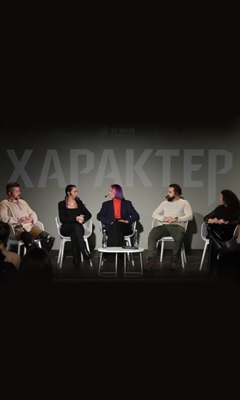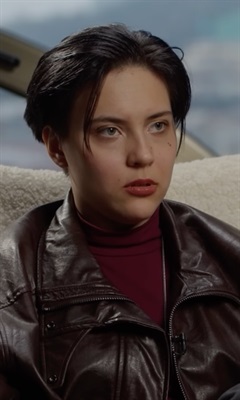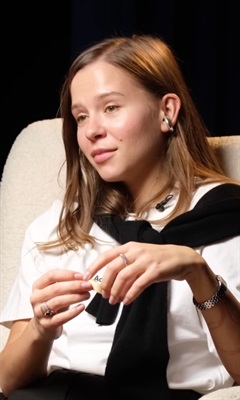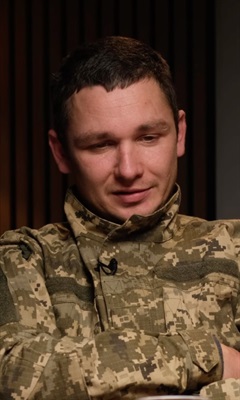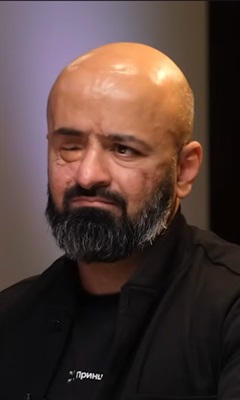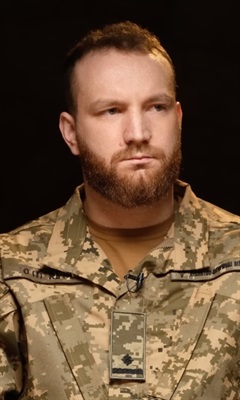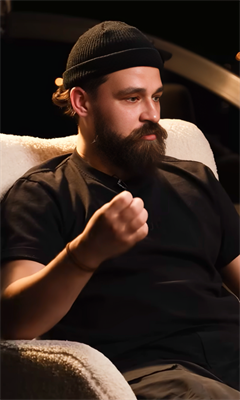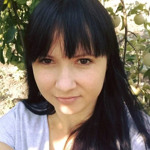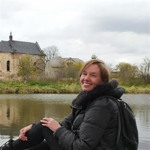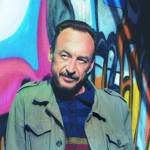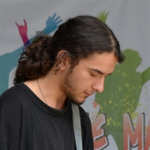Paramedic Serhiy Chornobryvets’ 22-Day shift in Mariupol
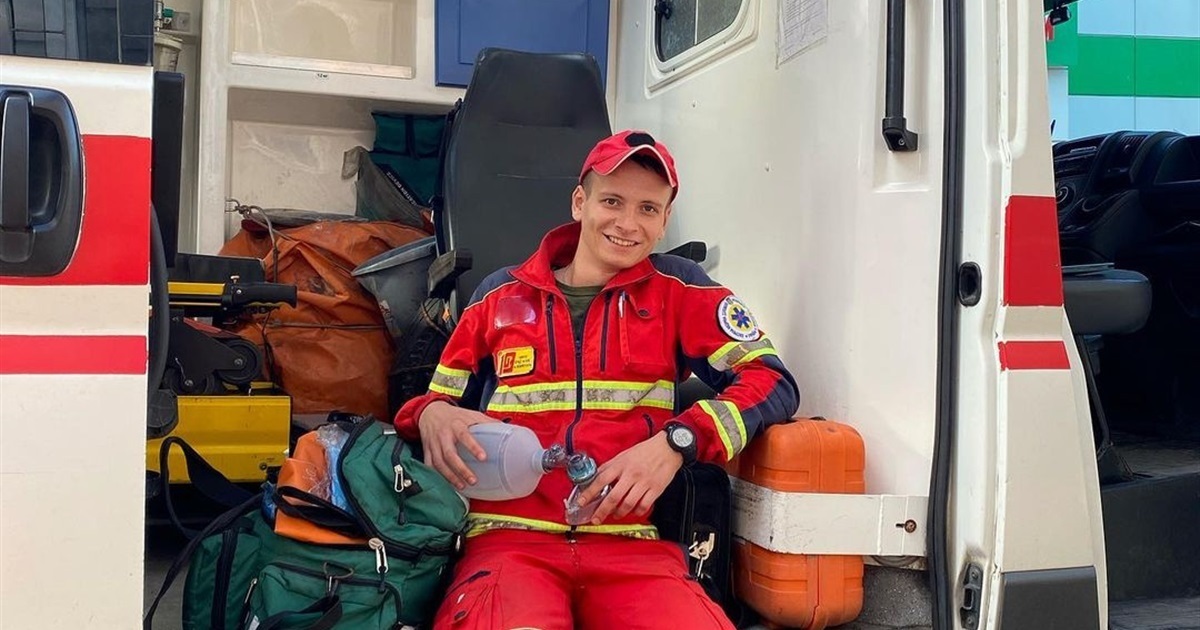
On top of that, Serhiy can be spotted on the footage from Yulia Paievska’s (better known as Tayra) bodycam. In his interview for Svoi, Serhiy speaks of his work in war-torn Mariupol, of Tayra who still remains in captivity, and of what urged his hasty departure from the city.
Let’s Count It as an Unpaid Internship
Serhiy Chornobryvets has been working in emergency medicine for there years. A native of Berdiansk, he graduated from a local medical college with a paramedic degree and went to Donetsk National Medical University (evacuated to Mariupol after the initial military invasion of 2014) to proceed with his studies. As of today, Serhiy is in his fifth year at the University, however, [since Mariupol was also occupied and ruined, — translator’s note], the future of his studies is now vague.
“I had a day off on February 24, so I was about to sleep in. It had been an average shift with quite a few calls. That morning, people from different cities and towns were calling me, over and over, yet I was sleeping and didn’t pick up the phone. It took me to receive five missed calls from my friend Kyrylo from Berdiansk to finally get out of bed and call him back. I’m like, ‘Hey, I’m trying to have some rest here. What do you want?’, and he’s like, ‘A [full-scale, — translator’s note] war broke out, so you better either turn your TV on or read the news on the Internet.’ So, after several hours of scrolling through the news on the Internet, I went outside and saw crowds of people near every ATM, pharmacy, and convenience store. But I did not succumb to the prevailing fuss and chaos.”
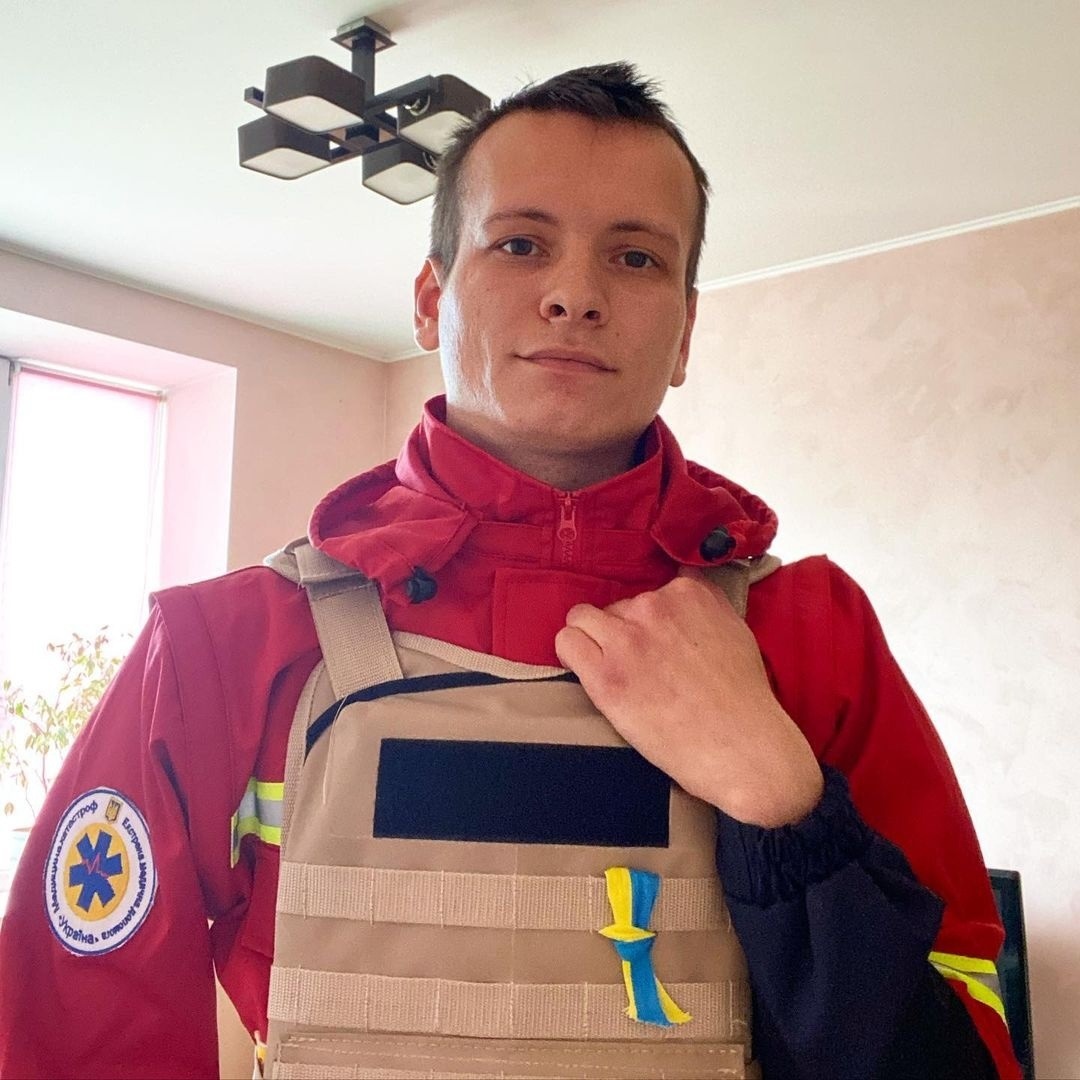
Serhiy contacted his supervisor and asked to be immediately given another shift. He understood that they couldn’t let him work overtime, so, in terms of the paperwork and payroll, he offered: “Let’s count it as an unpaid internship”.
“I love my job, I love emergency medicine, so it wasn’t about money, at all. My supervisor agreed that I could come, so I came, having bought some food and cigarettes for my team. I had to stand in a huge line to get all that. So I started my shift, the one that lasted 22 days. There was enough medical staff at the substation, for a lot of young paramedics, along with students-part-timers (myself included) clocked in. Some of the older, more senior, colleagues asked for their leaves and left in those early days. Neither did we have a shortage in medications, there were plenty in our storage room.”
You Get Used to Everything, War Fatalities Included
Serhiy explains, that there are safety protocols in place, requiring that emergency medical responder ensures their safety first. However, every time they got a call fraught with risk to their lives, Mr. Chornobryvets was one of the first to volunteer.
“The superiors always asked who of us were willing to go. [And I was always like], ‘Let me do it!’ During my years in emergency medicine, I’d got used to seeing blood, got sort of insensitive to it. On March 1, there was a massive shelling of the Kirov neighborhood, and our station had to treat 6 badly wounded patients simultaneously. Here’ this video depicts the moment when those wounded people were delivered to the station.
“They had open fractures, excessive bleeding, along with head, chest, and abdomen injuries. They were provided with first aid on site, loaded in the ambulances, and brought to the regional hospital. Still, there was one moment when I felt quite uneasy. One day, a man pulled in, asking that someone from our medical staff examined some injured people. So I opened the back doors [of his truck, — translator’s note], and saw two youngsters, boys aged sixteen maybe. One is conscious, with no evident injuries, and the other one had passed out, despite his eyes being open.
“There wasn’t even any part of his leg where I could apply a tourniquet. I started giving him first aid, anyway, and asked my colleagues to bring me some breathing bags. In just a minute, an M.D. came by, shook his head, and told me to abandon my attempts in resuscitating the poor kid. I insisted, and proceeded with the breathing bag until they forcibly removed me aside.”
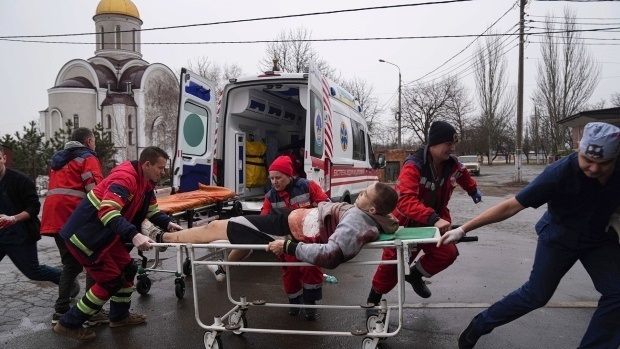 Serhiy (on the right) holding a wheel-stretcher.
Serhiy (on the right) holding a wheel-stretcher.
When he came to his senses, Serhiy understood that he could not dwell on those whom he pitied, because in doing so, he was losing opportunities to save those who still had a chance of surviving.
“You get used to everything, war fatalities included. I had no tears, no pity, no regrets. It was a job I had to do, It was my responsibility to, first of all, save lives.”
Tayra Boosted my Motivation and Righted My Mood
While they never lacked medications and ambulance dressing, Serhiy and his colleagues began experiencing fuel shortages in early March.
“We thank Tayra for helping us deliver gas to keep our vehicles running. There was some looting at the gas stations, so they stationed police patrols there, and every time we needed fuel, we would drive our ambulances to a gas station and the police officers would fill up our tanks.”
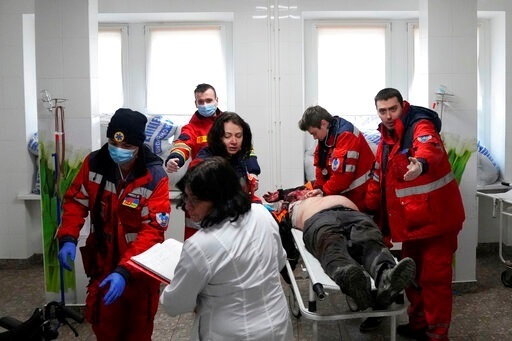
In his ambulance crew, Serhiy worked with a driver, Volodymyr, whom he considers being a really tough and brave man.
“One day, we were responding to a call to a man with a head injury, when shelling began. When it was over, Volodymyr turned to me and said, “Serhiy, I’m 65 years old, I’ve had a life, while you are young. So you decide whether we are responding to that call or not.” I thought about it for a minute, and replied, "Volodymyr, we have to go, come what may.” So we went there, and rescued the injured men while under shelling, and took him to the hospital.
“At first, when there were no hostilities, people were taken to the regional intensive care hospital. Later, when the Russian army took over that medical facility, we took the wounded to a children’s hospital known simply as “Triyka” [“a three”, “number three”, — translator’s note]. After that hospital was shelled, we took them to a cardiology center near our substation.
“We helped the civilians and the military alike because in wartime, emergency medical care is subordinate to military doctors. I had an opportunity to work with Tayra, we evacuated wounded soldiers together, who were later taken by helicopters to hospitals in other cities.
“To me, working with Tayra was very motivating. Her whole demeanor and her words really boosted my motivation. Your levels of motivation immediately skyrocket by just looking at Yulia and listening to her. I remember her saying, “Boys, you are forging yourself into men who everyone will be looking up to.” Those words helped me carry on during that 22-day shift. Whenever our paths crossed, Yulia kept the spirits high and never lost her heart. She was always smiling and always kept the conversation going. However short, those conversations were always sincere.”
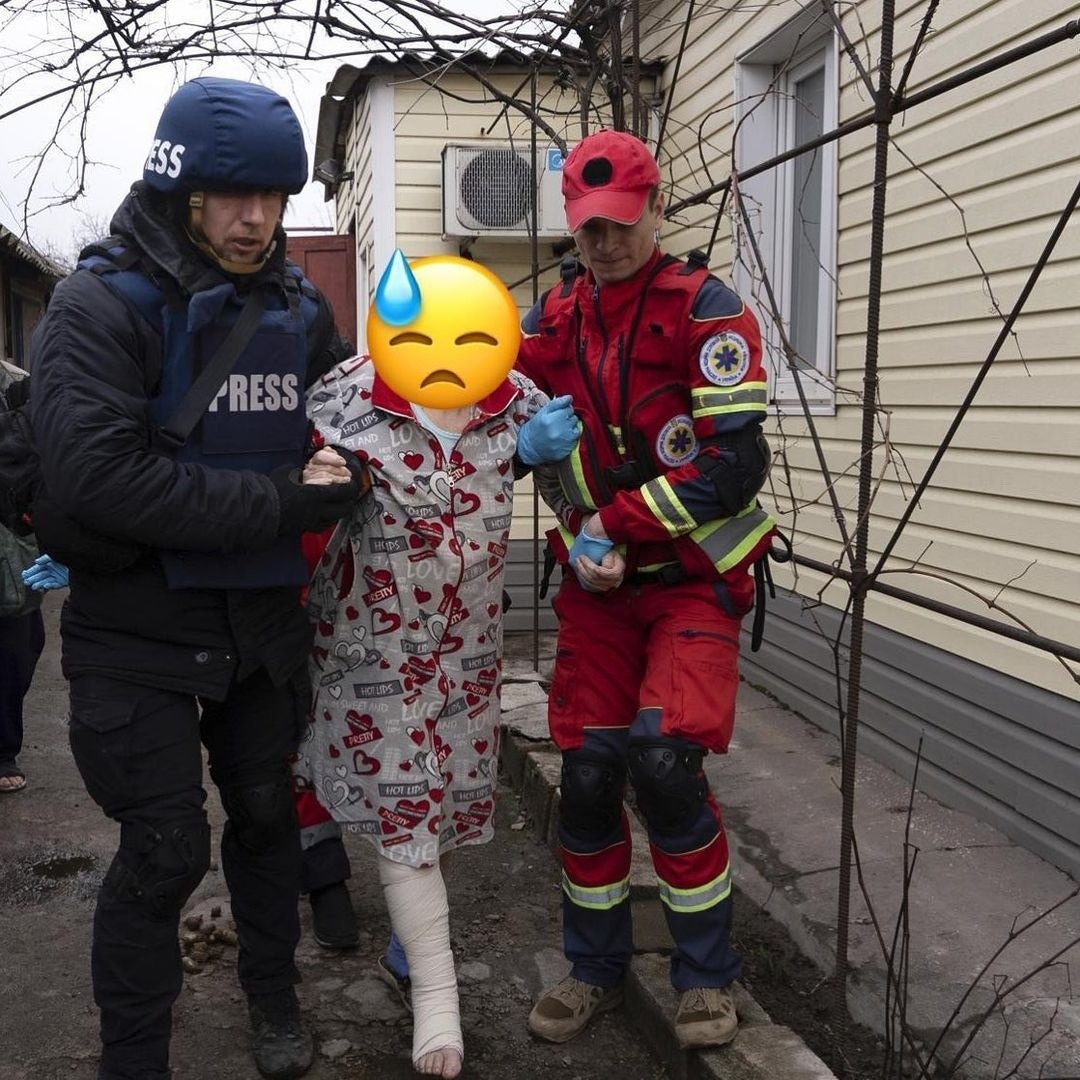 Serhiy being assisted by a photo reporter, Yevhen Malolietka
Serhiy being assisted by a photo reporter, Yevhen Malolietka
I Can Shoot You Right Here, On the Spot, And I Won’t Be In Any Trouble
March 17 was just another day of their long shift. Serhiy and Volodymyr were responding to a call, placed by a woman with a leg injury. However, they never had the chance to actually get to the injured woman.
“Russian soldiers stopped us at a roadblock, literally 200 m [656 feet, 0.12 miles, — translator’s note] away from our substation. They searched and questioned us, and asked us who we were and where we were headed. We told them that we were civil emergency medical responders providing medical aid to the civilians. "All right,” they said, “you may proceed, but there’s another roadblock farther down the road.” We drove another 150 meters [492 feet, 0.09 miles, — translator’s note], and stopped at the roadblock. There we saw soldiers with “DPR” bars running outside, shooting in the air, shouting at us to get out of the vehicle, or they would shoot us. So the driver and I immediately obliged, stepped outside and fell to the ground. While some were searching our ambulance, others were pressing the barrels of their guns against our backs. After the vehicle inspection was over, they told us to get up and began questioning us all over again. I told them, “We are responding to a call, there’s an injured woman waiting for us”. And they were like, “Go any farther, and we will shoot you.” Then one of them approached us and blatantly told us, “I can shoot you right here, on the spot, and I won’t be in any trouble”. So we never got to respond to that call and had to turn around and go back to our substation. When we got there, I told the rest of our colleagues about what happened. Some of them decided to stay, while I and five of my other colleagues got into a vehicle and bid our farewells to the city on the very next day.”
Serhiy left Mariupol on March 18, the day of his 24th birthday. There were 18 roadblocks on their route, where each of the medical team underwent a close examination because they left the city wearing their medical scrubs.
“We simply didn’t own other clothes at that point, as everyone’s homes had been either ruined or looted. Each of us had their passport, military record, and their record of employment on their person. Because we were wearing our scrubs, they gave us a specially close examination. At some roadblocks, they offered us to go to Donetsk instead, as they said they were in need of doctors there. We tactfully refused, saying that we were heading to Zaporizhzhia. To which those armed men replied that soon they would be there, too.”
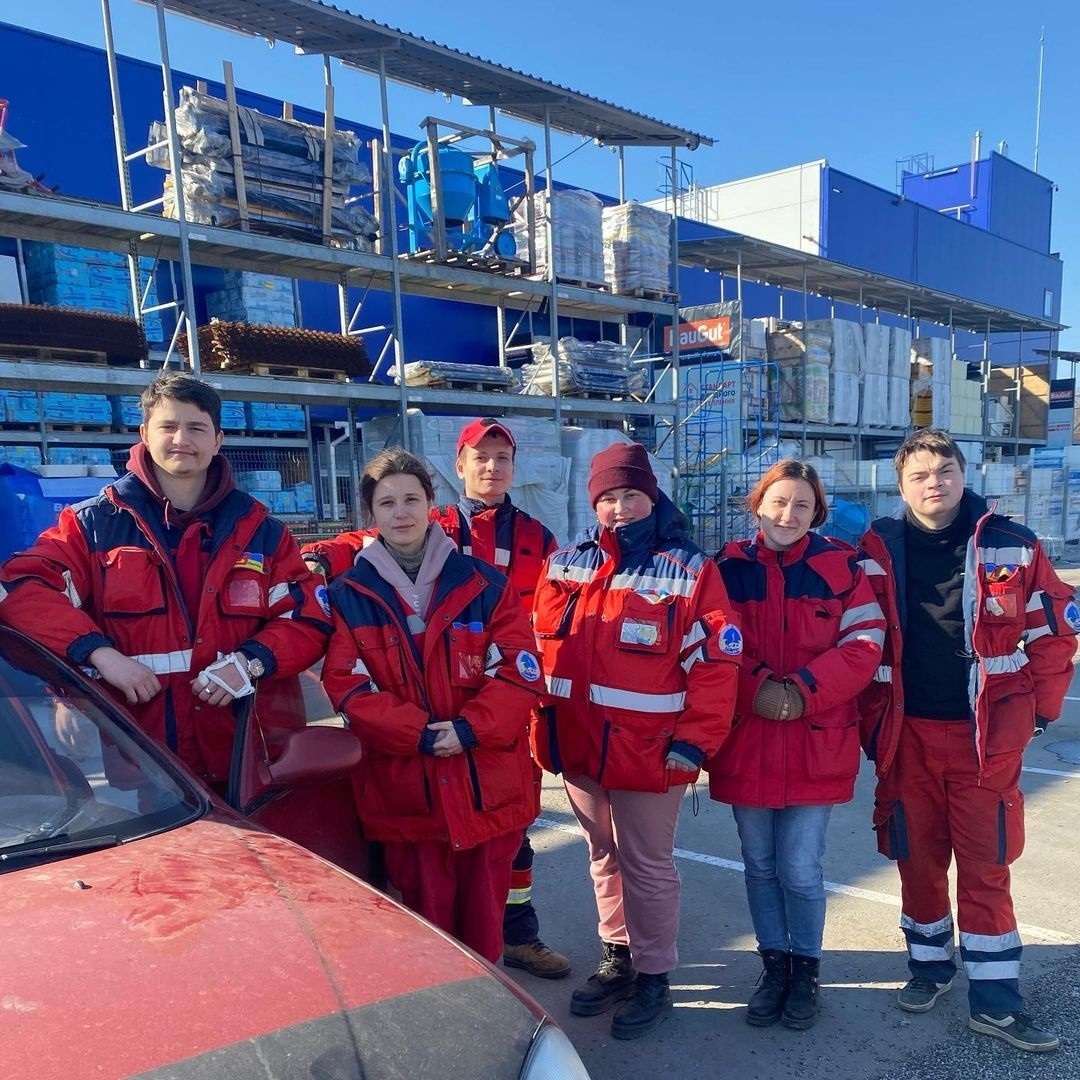 Evacuee paramedics from Mariupol in Zaporizhzhia
Evacuee paramedics from Mariupol in Zaporizhzhia
In Zaporizhzhia, the former coworkers bid their farewells, and everyone went their separate way, to different Ukrainian cities. Some went to Lviv, some to Odesa. As for Serhiy Chornobryvets, he is starting afresh in Kyiv.
Noteworthy: Here are the names of emergency medical responders who, along with Serhiy Chornobryvets, spent 22 days saving lives of the residents of Mariupol: Ms. Kateryna Nahnybida, Mr. Anton Kasimov, Ms. Tetiana Dvoinykh, Ms. Anna Haliy, Ms. Tetiana Britvina, Ms. Viktoria Bezkhlibna, Mr. Anton Shaulskiy, Mr. Ivan Bezkhlibniy, Ms. Alina Hlobchanska, Mr. Borys Pehushyn, Mr. Andriy Kononov, Ms. Olena Skirda, Mr. Mykyta Levchenko, Mr. Oleksandr Kononov, Mr. Oleksiy Serov.

